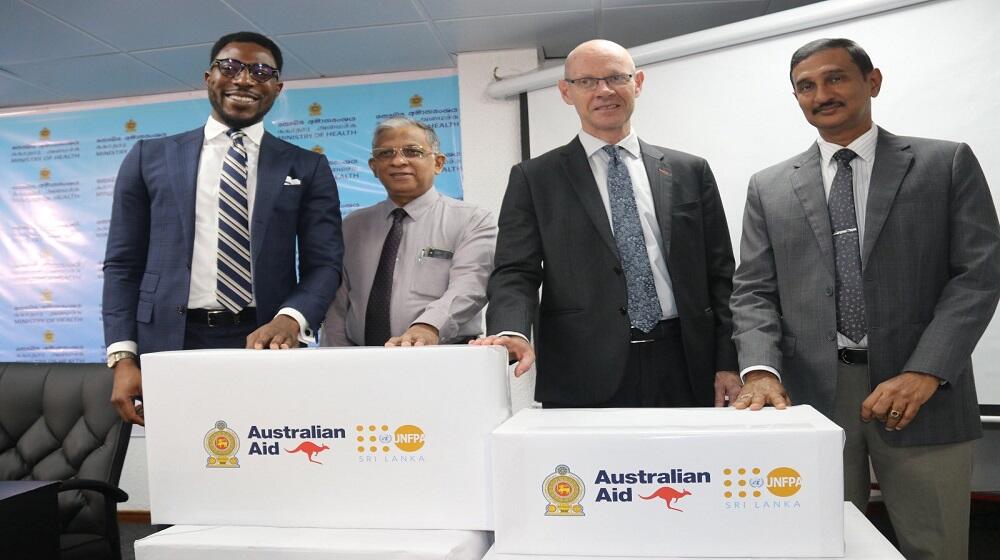The United Nations Population Fund (UNFPA) together with Australia’s Department of Foreign Affairs and Trade (DFAT) delivered the equipment to the Secretary of Health S. Janaka Sri Chandraguptha.
The handover consisted of 30 delivery beds, 20 mini-autoclaves, 6 weighing scales, 16,500 Jadelle, 31,500 non-hormonal IUDs, 900 HIV test kits, and 300 Syphilis test kits.
These are just part of the overall life-saving supplies arriving valued at 2 million Australian Dollars (US$ 1.3 million).
The items will be utilized in primary healthcare facilities across 9 districts, including Anuradhapura, Batticaloa, Colombo, Gampaha, Galle, Kandy, Mullaitivu, Nuwara Eliya, and Puttalam. They will also be utilized for community outreach via mobile clinics through service providers such The Family Planning Association of Sri Lanka, the Family Health Bureau and the National STD/AIDS Control Programme.
The provision of this medical equipment and commodities is part of a larger DFAT funded project where UNFPA assists crisis affected vulnerable populations in Sri Lanka to have improved and sustained access to quality and comprehensive life-saving sexual reproductive health care and gender-based violence services.
The occasion underscored the timely and crucial assistance provided by the Australian Government to Sri Lanka’s health sector throughout the multi-dimensional extended crisis. It also celebrated the joint efforts in accomplishing the goals outlined in the collaborative UN Humanitarian Needs and Priorities Plan (HNP), as well as those indicated in UNFPA’s Humanitarian Response Plan.
Secretary of Health, S. Janaka Sri Chandraguptha accepting the donations on behalf of the Ministry of Health said that Sri Lanka is grateful to the Australian Department of Foreign Affairs and Trade and the United Nations Population Fund for their timely and targeted assistance.
These medicines, equipment and commodities will be utilized across Sri Lanka to save lives and lessen the financial burden on the health sector during this critical period.
Australian High Commissioner to Sri Lanka Paul Stephens noted: “The items handed over will strengthen the primary healthcare service and enable outreach services for many women, girls, and young people. Women who have reproductive choices and access to health services are in turn, empowered to seek and keep better jobs, contributing to economic growth.”
UNFPA Sri Lanka Representative Kunle Adeniyi said, “The multi-dimensional crisis in Sri Lanka has created barriers to especially women and girls accessing health care and receiving the required medical support. The project by the Government of Australia is timely in strengthening healthcare and reaching those most at-risk through mobile healthcare providers. Humanitarian assistance efforts often ignore women’s special needs. Targeted support to women is one of the best ways to ensure the health, security and well-being of families and entire communities”.


